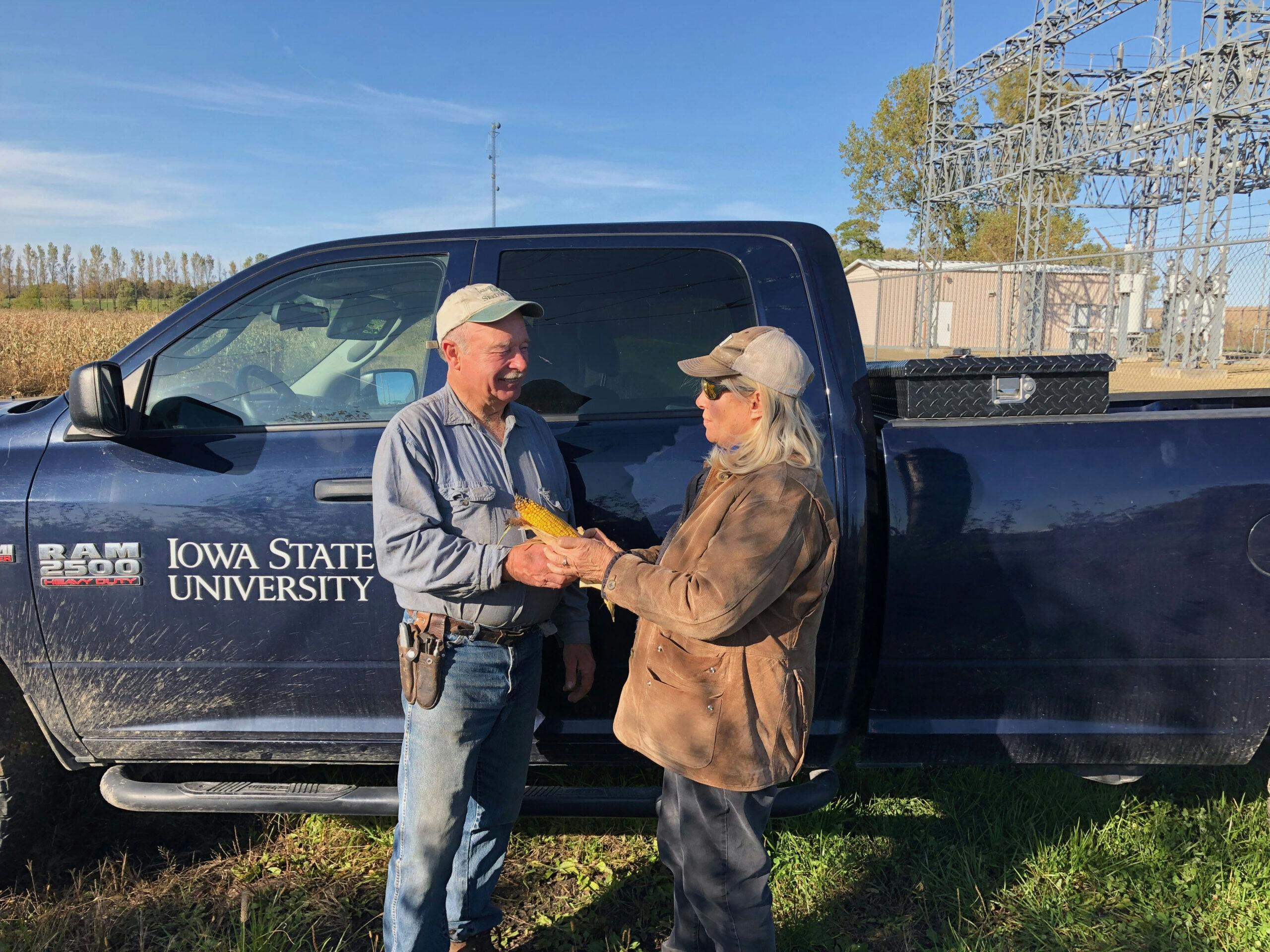
March 19, 2024
Partner Q&A with:
Dr. Kathleen Delate
Iowa State University Organic Agriculture Program
Ames, IA
Please tell us about the mission of your organization and what brought you personally to this work.
To educate producers, consumers and policy makers in the research and extension activities in Organic Agriculture both on-farm and in the Universities. Organic Agriculture involves a production management system based on the ecological principles of nutrient cycling, biotic regulation of pests and biodiversity. Synthetic fertilizers and pesticides are replaced by sunlight-based inputs, such as plant and animal residues. Premium prices for certified organic products drive the immediate economic benefits of Organic Agriculture. Long-term benefits to human and environmental health are also derived through these practices.
Organic production and processing continues to grow across Iowa, particularly in light of concern for climate-smart farming. The ISU Organic Ag Program (OAP) offers Extension, teaching and research activities to address clientele information needs and provide recommendations for best practices that meet certified organic regulations to ensure high food/feed quality with limited environmental impact.
I was fortunate to be selected for the first organic faculty position in the nation. I have pioneered organic agriculture science at the university level for over 25 years, with the second oldest organic and conventional research comparison in the nation (the Iowa State University Neely-Kinyon Long Term Agroecological Research (LTAR) experiment), following Rodale.
How would you describe the vision and goals of your organization?
To educate Iowans on organic agriculture and provide research-based and science-backed resources to producers to help them succeed as organic farmers.
What TOPP related programming are you creating at your organization?
We are running a mentorship program and providing workforce development along with intensive trainings. We are also working to set up organic demonstration plots around the state to showcase organic agriculture as part of our TOPP programming. TOPP is also part of our Iowa Organic Conference, the largest university sponsored organic conference in the nation, where we provide technical assistance and university research on organic practices.
Which TOPP priority area are you most excited about as it relates to the work of your organization and the
needs of your region?
Mentorship is probably the main priority we are excited about as we have great organic farmers that have been in the business for a long time. Many already mentor routinely so It is great that we can provide financial support for work they already do.
Please share a recent success related to this programming.
We are over our mentor and mentee goal for the quarter, which is great, and I am excited to have over 2,000 acres signed up in year one for transition! We also had a training with NRCS to provide hands on training for the 823 organic management which 65 people attended.
What unique challenges do you face in your region in terms of growing organic acreage?
In Iowa, as the younger generation takes over the farm from their parents, they are looking for new revenue sources and the competitive markets and organic premiums make those new revenue sources possible so that is encouraging, but there is still a lot of support for conventional farming. That is probably the unique
challenge we face in a state that has so much support for conventional agriculture. It can be hard to convince producers to lengthen their rotations. Organic agriculture is a systems-based farming practice so it can be hard to realign thinking along these terms. Organic cannot and will never be a synthetic inputs-based
system no matter how hard researchers are trying to create organic inputs. Extending your rotations is the main way to build soil health and there are some years when you can’t grow corn.
If you could fast forward to 2027 and the end of the five year TOPP program, what do you envision? What do you hope we’ve accomplished?
A significant amount of acres across the US have transitioned to organic, – lets double this goal. We need to get people certified and keep them certified. One of the biggest accomplishments I see is if there is lasting change on the ag landscape. How many of these farmers, after TOPP is over, will keep their certification – that is something that we need to be addressing before the program ends.

©2024 Transition to Organic Partnership Program. All Rights Reserved.
Site By 3Lane Marketing


